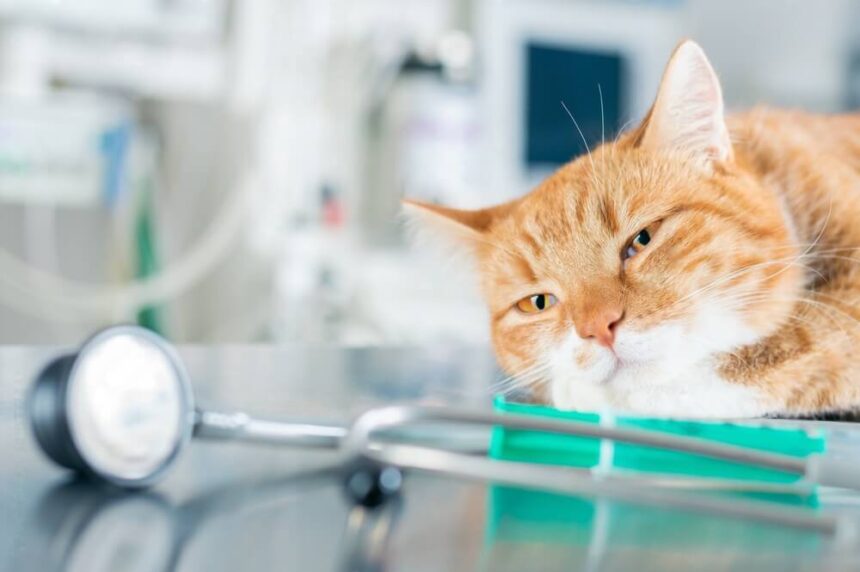Losing a beloved pet is never easy, and it can be even more difficult when you’re facing financial struggles. As a pet owner, it’s your responsibility to provide your cat with the best possible care, but sometimes, circumstances can make it impossible to do so. If you find yourself in the difficult position of not being able to afford the medical care your cat needs, it’s important to know that you’re not alone.
In this article, we’ll discuss the various options you have when your cat is dying and you have no money. We’ll explore ways to manage the financial burden and provide your cat with the comfort and care they need in their final days.
Understanding Your Cat’s Condition
The first step in dealing with your cat’s illness is to understand their condition. You need to know what’s wrong with your cat, what symptoms they’re experiencing, and what treatment options are available. This will help you make informed decisions about their care and determine what kind of support they need.
If you’re unsure of what’s wrong with your cat, take them to a veterinarian for an examination. Your vet will be able to run diagnostic tests to determine the cause of your cat’s symptoms and suggest appropriate treatment options. However, if you’re unable to afford a visit to the vet, there are some resources available to help.
Low-Cost Veterinary Care
Many pet owners are unaware that there are low-cost veterinary clinics available in most areas. These clinics offer affordable veterinary care to pet owners who are unable to afford traditional veterinary services. The services offered at these clinics may be limited, but they can provide basic care such as vaccinations, deworming, and spaying/neutering.
You can find low-cost veterinary clinics by doing an online search or contacting your local animal shelter or animal control office. These organizations may be able to provide you with a list of low-cost veterinary clinics in your area.
Charitable Organizations
There are also many charitable organizations that offer financial assistance to pet owners who are struggling to pay for veterinary care. These organizations may provide grants or loans to help cover the cost of medical treatment for your cat.
One such organization is the Humane Society of the United States. They offer a list of resources for pet owners who are facing financial difficulties and need help caring for their pets. Other organizations, such as the ASPCA, offer similar resources to pet owners in need.
Crowdfunding
In recent years, crowdfunding has become a popular way to raise money for a variety of causes. If you’re unable to afford your cat’s medical expenses, you may want to consider starting a crowdfunding campaign. This can be a great way to raise money quickly and get the financial support you need.
There are many crowdfunding platforms available, such as GoFundMe, Kickstarter, and Indiegogo. When starting a crowdfunding campaign, it’s important to be transparent about your cat’s condition and the medical expenses you’re facing. Share your story on social media and ask friends and family to help spread the word.
In addition to crowdfunding, you may also want to consider setting up a donation jar or asking for donations on social media. Every little bit can help when it comes to paying for your cat’s medical care.
End-of-Life Care
If your cat’s condition is terminal and there’s no hope for recovery, it may be time to consider end-of-life care. This can be a difficult decision to make, but it’s important to consider your cat’s quality of life and do what’s best for them.
End-of-life care may involve hospice care or euthanasia. Hospice care can provide your cat with comfort and pain management in their final days. Euthanasia is a humane way to end your cat’s suffering when they’re no longer able to enjoy a good quality of life.
If you’re unable to afford end-of-life care for your cat, there are still options available. Many animal shelters and rescue organizations offer humane euthanasia services for pets in need. They may also provide support and resources to help you through the grieving process.
Another option to consider is home euthanasia. While this can be an emotional and difficult decision, it can provide your cat with a peaceful and familiar environment in their final moments. You can work with your veterinarian to determine if home euthanasia is a viable option for your cat.
Coping with the Loss
Losing a beloved pet can be an incredibly difficult experience. It’s important to give yourself time to grieve and process your emotions. You may also want to consider seeking support from friends, family, or a professional counselor.
Remember that it’s okay to feel sad and mourn the loss of your pet. They were a cherished member of your family, and it’s natural to feel a sense of loss and emptiness after they’re gone.
In addition to emotional support, there are also resources available to help you memorialize your cat. Many pet owners choose to create a memorial or tribute to their pet, such as a photo album, scrapbook, or keepsake. You may also want to consider planting a tree or dedicating a garden in your cat’s memory.
Final Thoughts
Losing a pet is never easy, and it can be especially difficult when you’re facing financial difficulties. However, there are many resources available to help you provide your cat with the care and support they need in their final days. From low-cost veterinary care to crowdfunding and charitable organizations, there are many ways to manage the financial burden of caring for a sick or dying pet.
Ultimately, the most important thing is to do what’s best for your cat. Whether that means pursuing medical treatment or choosing end-of-life care, it’s important to make decisions that prioritize your cat’s comfort and well-being. And when the time comes to say goodbye, remember that your pet will always hold a special place in your heart and memories.



